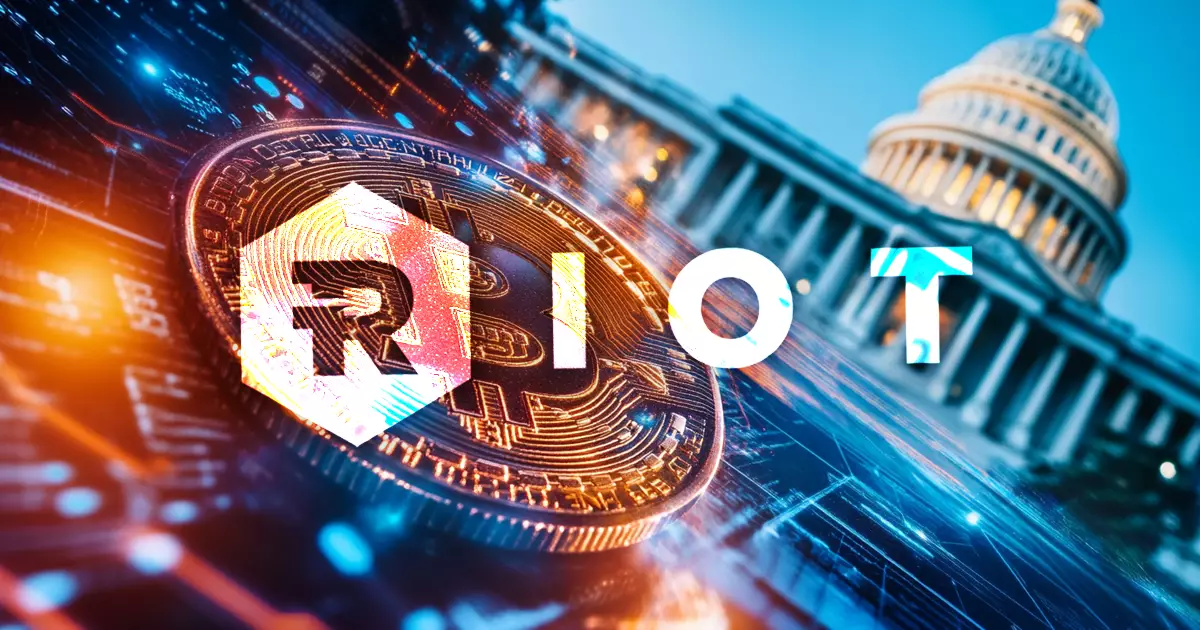In an era of economic unpredictability, digital assets like Bitcoin are becoming increasingly significant in discussions surrounding state finances. Our understanding of Bitcoin has evolved not just as a speculative investment but as a potential cornerstone for state financial strategies. The recent testimony by Pierre Rochard, Vice President of Research at Riot Platforms, before the Texas Senate Committee exemplifies a growing recognition of Bitcoin’s utility as a state reserve asset. This article analyzes the implications of the proposed Senate Bill 21 and delves into the sentiments expressed by Rochard regarding Bitcoin’s role in fortifying state finances.
Senate Bill 21 seeks to establish a Bitcoin reserve for the state of Texas. This legislation draws attention to the unique characteristics of Bitcoin, particularly its verified ledger and limited supply, which set it apart from other digital currencies. By advocating for a state reserve, the bill aims to offer a financial cushion in times of economic strain. Rochard’s testimony makes it clear: Bitcoin’s finite nature—capped at 21 million coins—positions it as a non-inflationary asset, a stark contrast to traditional fiat currencies that can be printed at will, thus diminishing their value during dire economic conditions.
Rochard’s conviction in Bitcoin’s capabilities centers on its transparent, auditable, and decentralized framework. Bitcoin’s issuance relies on public mining, which operates under a competitive environment that inherently limits the supply of new coins, unlike the discretionary issuance methods employed by cryptocurrencies like Ethereum (ETH) or XRP. This distinction presents a compelling case for Bitcoin’s potential as a resilient asset for public balance sheets. Incorporating Bitcoin into state finances can act as a hedge against inflation and economic downturns, which is sorely needed in the current financial climate.
The legislation also removes the prior cap on Bitcoin acquisitions—previously set at $500 million per annum—allowing state officials to adjust investments more dynamically based on market conditions. This maneuver enhances the state’s ability to respond effectively to economic fluctuations while potentially expanding their asset base. Further, the bill opens the door for other digital assets to be considered, subject to a specific market-cap criterion, which, while currently limited to Bitcoin, indicates a wider acceptance of cryptocurrencies in public finance strategies.
Supporters of the bill highlight its potential economic benefits, particularly in regions like Milam County, where Riot’s mining facilities contribute not only as local employers but also significantly bolster public funds through elevated sales tax revenue. Mining operations create jobs and stimulate the economy, serving as vital infrastructures that can yield substantial returns for local communities. Given the hardships faced by various regions due to the broader economic landscape, legislation like SB 21 could offer an alternative pathway toward stabilization and growth.
One of the key concerns surrounding the integration of cryptocurrencies into state finances is the management and oversight of these assets. In response, the proposed legislation outlines a robust governance framework led by the Texas Comptroller’s Office. With protocols for cold storage and regular audits, the initiative seeks to ensure that public funds remain secure and transparent. As financial institutions continue to grapple with credibility issues stemming from historical lapses in transparency, Bitcoin’s decentralized nature presents an appealing alternative that could foster a renewed sense of trust.
Rochard emphasizes that the push for Bitcoin reserves in Texas is part of a larger trend among various states reevaluating their fiscal management approaches amid changing economic landscapes. As states compile substantial reserves exceeding $23 billion, there is a pronounced shift towards incorporating digital assets into public financial strategies. This move not only reduces dependence on conventional banking systems—often beleaguered by issues of accountability—but also positions states as proactive stakeholders in the evolution of monetary policies.
Pierre Rochard’s testimony regarding Senate Bill 21 underscores a profound transformation in the understanding of digital currencies within public finance. While Bitcoin carries inherent market risks, its unique attributes—the transparent ledger, capped supply, and decentralized nature—forge a strong argument for its inclusion in state reserves. As the Texas Senate Committee prepares to vote on this legislation in March 2025, the outcome will likely resonate far beyond Texas, signaling a pivotal moment in the adoption of cryptocurrencies in public finance across the United States.















